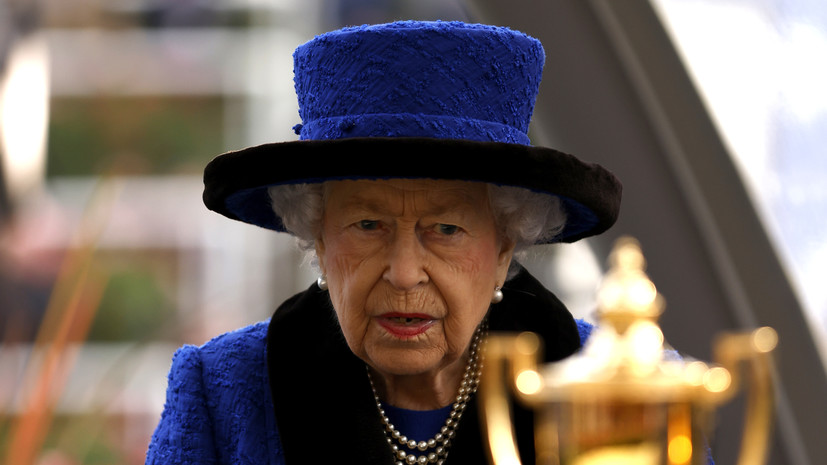On Thursday, September 8, Queen Elizabeth II died at the age of 97, according to Buckingham Palace.
She died peacefully at Balmoral Castle in Scotland.
Earlier in the day, the Queen's doctors expressed concern over her health.
The monarch was advised to remain under medical supervision.
According to British media, all four of her children (Prince Charles of Wales, Princess Anne, Prince Andrew, Duke of York, Prince Edward, Earl of Wessex) and grandson - Duke of Cambridge William arrived at Balmoral Castle in Scotland, where Her Majesty has been in recent days. .
Also expected is the arrival of Prince Harry, who is flying to Scotland without his wife Meghan Markle.
Since the Queen died at Balmoral Castle, a memorial service will be held at St. Egidius Cathedral in Edinburgh, Scotland.
After that, the coffin will be delivered to London, where it will be met by all members of Parliament, headed by the Prime Minister.
The funeral will take place at Westminster Abbey nine days after the death of Elizabeth II.
After the death of the queen in Britain, national mourning began, which will last ten days.
The heir to the British throne is the eldest son of Elizabeth II, Prince Charles of Wales.
He stated that his mother's death was "a moment of great sadness" for him.
“The death of my mother, Her Majesty the Queen, was a moment of great sadness for me and all family members,” Buckingham Palace quoted him as saying.
British Prime Minister Liz Truss has announced that the new monarch has taken the name Charles III.
Elizabeth II ascended the British throne on February 6, 1952 at the age of 25.
This happened after the death of her father, King George VI.
On June 2, 1953, the official grand coronation ceremony was held at Westminster Abbey, which was broadcast live on television for the first time in the history of the royal family.
She was watched by about 27 million people in the United Kingdom and about 100 million around the world.
Together with Great Britain, Elizabeth II headed the British Commonwealth of Nations (former British colonies and protectorates).
Go to gallery page
On September 9, 2015, she broke her great-great-grandmother Queen Victoria's longest-serving record of 63 years, 7 months, 2 days.
As a result, she spent more than 70 years on the throne.
During the years of her reign in the United Kingdom, 15 prime ministers were replaced.
For the longest time, Elizabeth II worked with Prime Minister Margaret Thatcher, who held this post for more than 11 years.
The first of the prime ministers was Winston Churchill, who took office six months before the coronation of Elizabeth II.
The latest is Liz Truss, who was appointed head of government on September 6 after the Queen accepted Boris Johnson's resignation.
"Miss Truss accepted Her Majesty's offer and kissed her hand upon her appointment as Prime Minister and First Lord of the Treasury," Buckingham Palace said in a statement.
Elizabeth II became the first monarch to circumnavigate the world.
Its duration was six months.
In total, during her reign, she made over 300 visits to more than 130 countries.
From October 17 to October 20, 1994, Elizabeth II paid an official visit to Russia for the first and only time.
She was hosted by the then President of the Russian Federation Boris Yeltsin.
In Moscow, the queen visited the Bolshoi Theater, the cathedrals of the Moscow Kremlin, took part in the grand opening of the Old English Court Museum on Varvarka, which became a branch of the Moscow History Museum.
In St. Petersburg, excursions to the Peter and Paul Fortress, the Hermitage and the Mariinsky Theater were organized for her.
“Queen Elizabeth II was an epochal figure.
Her arrival was marked, one might say, by fundamental changes in the life and regulations of the British monarchy.
She led an active social life until the last days, was aware of events within the country and in the international arena, ”said Oleg Okhoshin, a senior researcher at the Center for British Studies at the Institute of Europe of the Russian Academy of Sciences, in a conversation with RT.
According to him, the queen "was able to adapt to all the cultural, political changes that have taken place in the country over the past 70 years."
“The monarch who takes the royal throne (and this will be her son Charles) will have to live up to the high bar that his mother set,” the expert believes.

